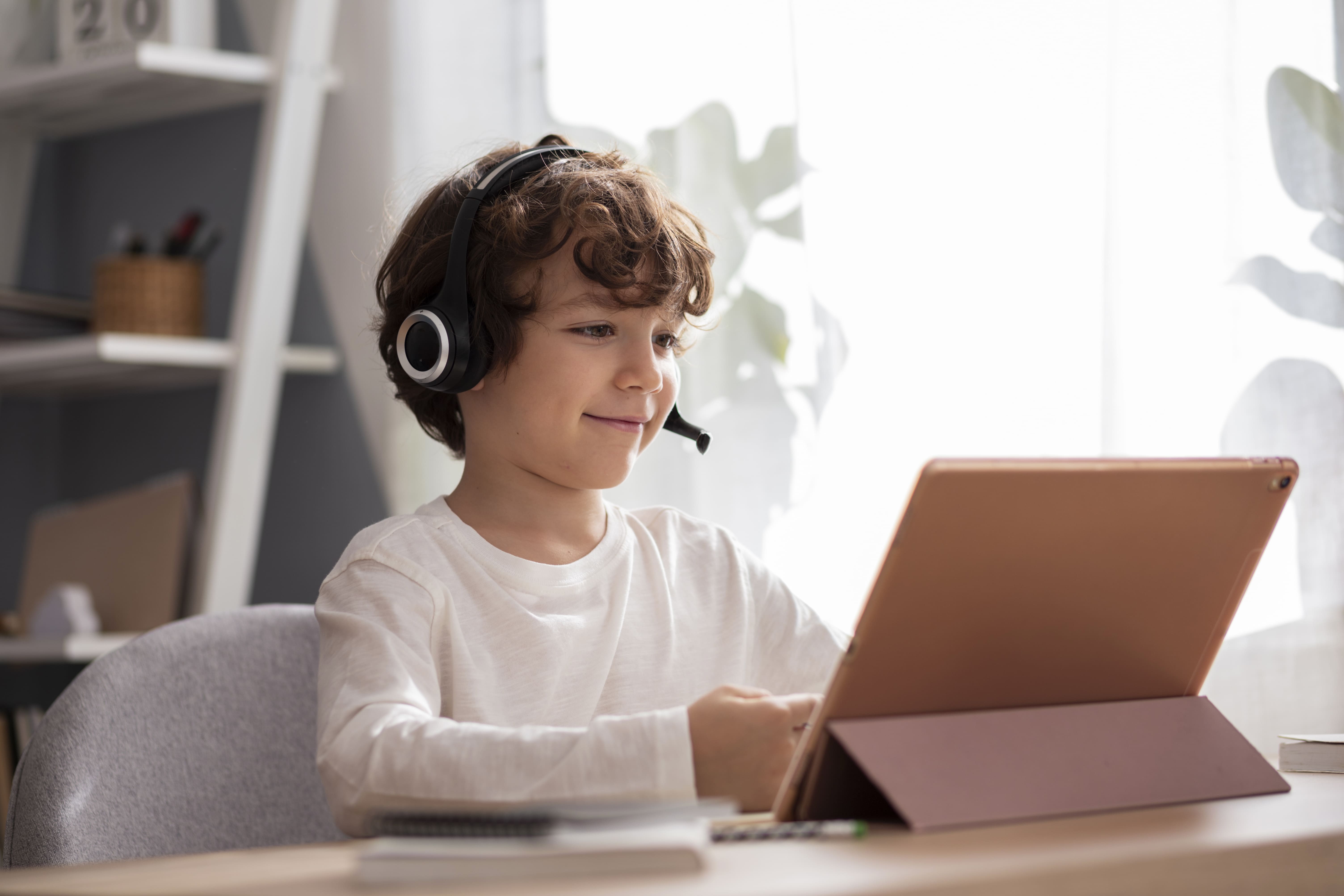How to help my child do online learning efffectively?

With the COVID-19 pandemic since 2020, children are asked to stay at home, including learning school materials from home. This makes school-age children also adapt to online learning from home. So that children can continue to pursue lessons, various online media are used, for example ZOOM, Whatsapp groups, and Youtube.
Based on research conducted by Dong, et al. (2020), it was found that parents in China have negative perceptions about online learning. In general, they do not believe that online learning can replace face-to-face learning. For example, they feel that their children have a lower understanding of lessons at school. Parents also often have difficulty guiding their children to study at home.
The same thing is very likely to happen in Indonesia. Changes from face-to-face to online learning systems are not always approved due to concerns about the effectiveness of these systems. However, of course learning online is better than not learning at all.
There are several things parents can do to help increase the effectiveness of online learning:
- Prepare your child to be ready for online learning
When your child is about to start online learning, tell your child what to expect from this learning system. For example, you can tell your child that we are not going to school but will meet friends and teachers via ZOOM.
Tell your child's expectations of realistic online learning. For example, say that your child still has to do homework, answer the teacher's questions and be present on the ZOOM screen. The point of being realistic is that it will be harder for your child to stay focused while learning online. So allow children to take a few breaks, chat occasionally with people at home, eat snacks while studying online.
Another thing is that when learning online there is a tendency for your child to be more static and less mobile. Your child's eyes may also be more tired from staring at the screen. To make your child more focused while studying, you can schedule physical activities such as walking around the complex if it feels safe enough or doing other light sports.
- Appreciate when children learn well during the online learning process.
As explained above, adapting to changes in the learning system is not always easy to keep children learning well. So, if the child has shown the expected behavior, give a clear appreciation. For example, if you see a child answering the teacher's questions, you can praise the child's behavior or give the child a favorite snack at the end of the lesson.
- Communicate more with other teachers and parents.
In addition to children, teachers also experience adaptation to this learning system. Therefore, teachers need feedback from parents whether the teaching is good or requires changes. You can also advocate for your child's needs. For example, you feel your child needs a break every 30 minutes. You can ask the teacher for permission to give a break. In addition, you can advocate if your child has difficulty doing assignments or understanding lessons so that the teacher can help.
Adjustment from the face-to-face learning system to the online learning system is not easy, but for the sake of continuing education, adaptation and acceptance of children need to be carried out by parents, children and teachers. Therefore, the use of the above strategy is expected to facilitate the adaptation of the online learning system.
Source:
Dong, C., Cao, S., & Li, H. (2020). Young children's online learning during the COVID-19 pandemic: Chinese parents' beliefs and attitudes. Children and youth services review, 118, 105440. https://doi.org/10.1016/j.childyouth.2020.105440
Written by:
Kunthi Kumalasari Hardi, M.Ed., BCBA. from BehaviorPALS
online learning, children, COVID-19 pandemic
Children 4 Years - 6 Years / 4 Tahun - 6 Tahun / Cognitive Development / Tumbuh Kembang Kognitif / Education / Pendidikan / How to help my child do online learning efffectively?
Comments















